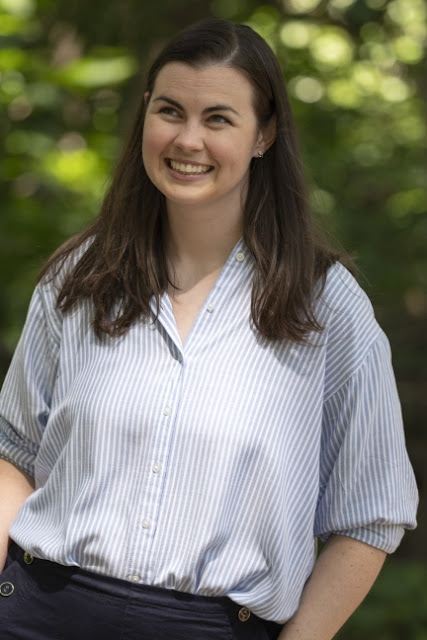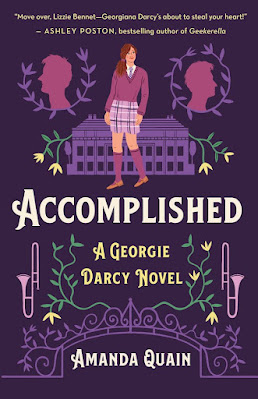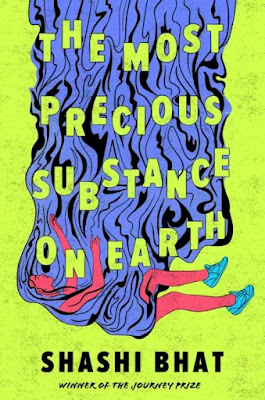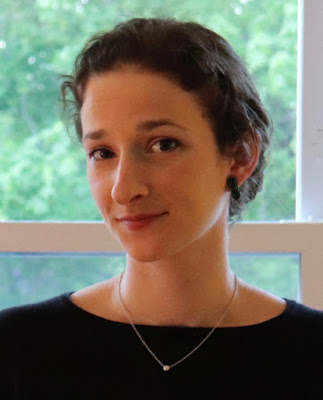Ruthanna Emrys
Ruthanna Emrys lives in a mysterious manor house on the outskirts of Washington, DC with her wife and their large, strange family. Her stories have appeared in a number of venues, including Strange Horizons,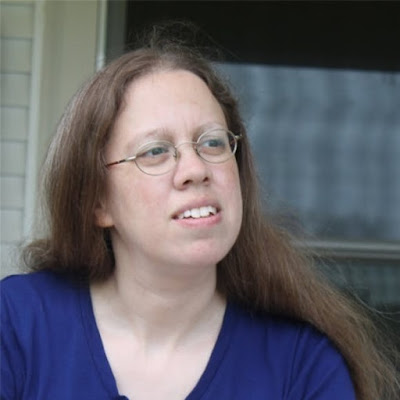 Analog, and Tor.com. She is the author of the Innsmouth Legacy series, which began with Winter Tide.
Analog, and Tor.com. She is the author of the Innsmouth Legacy series, which began with Winter Tide.
Emrys's new novel is A Half-Built Garden.
My Q&A with the author:
How much work does your title do to take readers into the story?Visit Ruthanna Emrys's website.
I wrote this entire novel under the working title of The Fifth Power – a reference to how the people of 2083 think about themselves. They see the dandelion networks – which integrate human opinion with AI advocates for rivers and prairies and trees – as improving on four earlier forms of power (nature dominating humans, religion, nation-states, corporations).
My editor hated that title, though, so I ended up with a whole page of ideas riffing on images and ideas that were important to the story. These ranged from Bring Us To This Season (emphasizing the Jewish characters with a prayer about survival through hard times), to The Reach and the Grasp (referring to the alien Ringers’ obsession with symbiosis), to about two minutes of consideration for Symbiosis and Synthesis. I do think first contact is a kind of novel-of-manners, but this isn’t actually an Austen riff and I’m the only one who’d get the joke.
I finally chose A Half-Built Garden as a metaphor that works for all the conflicting groups in the book. They’re all in the middle of some great effort, whether it’s keeping Earth habitable or building a Dyson Sphere, and for all of them success depends on the outcome of first contact.
What's in a name?
A Half-Built Garden starts with two species of aliens visiting Earth together. They’re from the same solar system, and have been building a syncretic culture ever since the more technologically-advanced planet reached out to the stone-age one and started sharing technology. They expect to build this same sort of beneficial, somewhat patronizing, relationship with humanity.
Early in that original contact, the Ringers started using names that could be translated via molecular diagram. A thousand-ish years later, those names carry meaning related to the substances in question. Cytosine, the ship’s “first mother,” is named for a key component of DNA (and her species’ equivalent of DNA), which carries connotations of centrality and fertility. Rhamnetin, whose job involves asking difficult, annoying questions, is named for what readers might recognize as a compound that makes cloves smell so nice – for Ringers it might also carry a mix of ideas around comfort and sharpness and healing.
Other names might not translate as well: when Cytosine is telling a story about a trickster figure, she calls her “Caffeine” in English where the original name is a Ringer stimulant.
How surprised would your teenage reader self be by your new novel?
First contact stories have always been my favorite sub-genre, and in my teens I was always making up stories about humans learning to communicate with aliens. On the other hand, I didn’t actually like humans very much at the time. If a starship had shown up and invited me aboard, I’d have left Earth without a backwards look! So my teenage self would be most surprised by the degree to which the main characters are attached to their planet, and see learning to thrive there as a necessary precursor to surviving farther afield.
Do you find it harder to write beginnings or endings? Which do you change more?
Beginnings are easy! I have so many files that are just clever openings that never went anywhere. That doesn’t mean I never have to mess with the start of a book, although for A Half-Built Garden I mostly haven’t. The first scene with Judy going out to investigate a pollution readout on the Potomac, and finding an alien spaceship instead, hasn’t changed much from when I first shared it at a reading in 2018.
Endings, on the other hand, are a challenge that feeds back through the whole process of writing. They have to wrap up everything I’ve done with theme and plot and character, and everything that comes before has to feed into that conclusion. I’m often wrong about where the ending is, because by the time I’m getting close I feel anxious and eager to wrap everything up. So I tend to rush the first draft. In this case, my editor told me that I needed to add an epilogue, which is not something you often hear from editors!
Do you see much of yourself in your characters? Do they have any connection to your personality, or are they a world apart?
For any given book, I give myself constraints to make the writing process more interesting. One of my rules with this book was to be very personallyspeculative – what is the future of my neighborhood, my home ecosystem, my great-grandchildren? I thought deliberately about how the values and ideas that I’m passing on to my kids might play out in a couple of generations. So Judy and her family have a lot in common with me for that reason – and would also find my limited modern sensibilities exasperating!
Judy has a lot of me in her, from her progressive Jewish spirituality to her desire to balance a lot of different “jobs” rather than focus on one expertise. Her efforts to negotiate with her co-parents also draw from my own experiences raising kids in a group household. On the other hand, she’s not used to being much of an activist. She’s from a generation that takes a relatively just, cooperative society for granted, and would much rather stick to that society’s day-to-day maintenance work than get involved in world-changing events. Part of the story is how she learns to apply her strengths to that level of stakes.
What non-literary inspirations have influenced your writing?
I first came to DC on a policy fellowship at the Environmental Protection Agency. I got very involved with the EPA’s work on crowdsourcing and citizen science, and excited about the potential for democratizing how people interact with the world around them – not just collecting pollution data, but asking and answering their own questions, making decisions about ecosystem management based on a deeper awareness of those answers. The watershed networks build on these social and computational technologies to deal with climate change, and to change the whole relationship that humans have with the rest of nature.
When I first started writing, I sat down with a couple of my old EPA colleagues, and asked, “What are the coolest things going on in watershed management right now?” Their nerdy speculation didn’t all end up on the page, but a lot of it went into the behind-the-scenes worldbuilding. And their excitement itself, the way that DC policy wonks fall in love with the details of solving big problems, shaped the remnant U.S. government that shows up to talk with the Ringers. Who’s still working at NASA in 2083? People who are willing to spend decades fighting impossible battles, and to make Star Trek jokes while they do it.
--Marshal Zeringue
